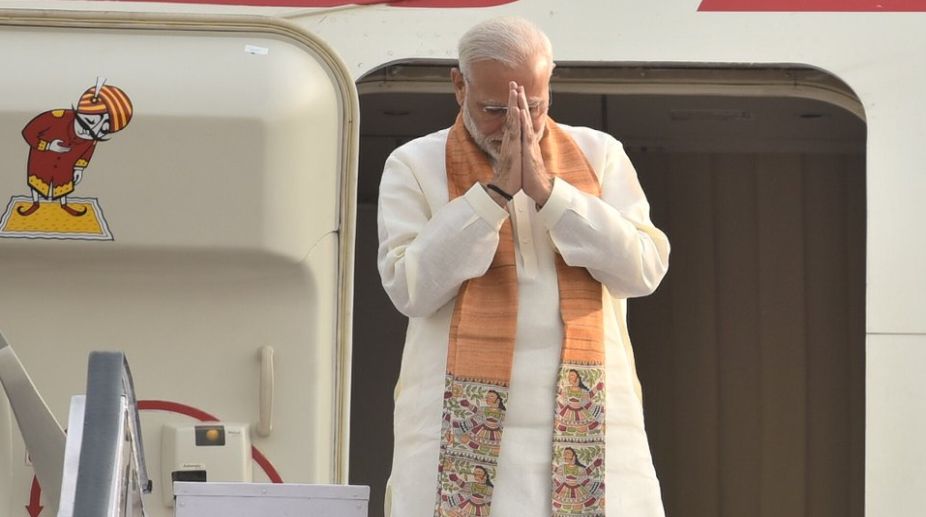The Central Information Commissioner (CIC) has directed the Air India to disclose complete records related to bills raised for the foreign visits of Prime Minister Narendra Modi.
The commission underlined that since the expenditure is from the public exchequer it cannot be withheld under the “cloak” of commercial confidence and fiduciary capacity.
Advertisement
“Moreover, by no stretch of imagination, it can be acceptable that the information regarding dates, duration and places of visit by the PM in his official capacity are exempted u/s sections 8 or 9 of the RTI Act (the exemption clauses under the RTI Act),” Information Commissioner Amitava Bhattacharyya ruled.
He said each individual bill as well as the dates of receipt of amounts should be disclosed as the same involved “expenditure out of public exchequer”.
“The commission after close scrutiny of the information sought by the appellant observed that dates, duration and places of the prime minister’s foreign visits are disclosable (sic) as these details are widely reported in the media, both national & international and both print & electronic,” Bhattacharyya said.
He said the commission is not convinced with the CPIO’s submission of exemption under the “cloak of commercial confidence and fiduciary relationship” with the client concerned, which in this case is another wing of the same government.
The commission’s order comes in connection with an RTI application dated 2 February, 2018, by Commodore (Retd) Lokesh Batra, which had sought to know from Air India the dates of invoices raised for chartered flights provided by it for foreign visits of the Prime Minister since November 2016, and the dates of forwarding each of these bills to the Civil Aviation Ministry and the External Affairs Ministry.
The commission rejected the arguments of Air India’s central public information officer (CPIO) that the information relates to commercial confidence and is held by the public sector undertaking in a fiduciary capacity, making it exempt from disclosure.
However, in response Air India, the national carrier had cited an instruction from the PMO to not share information related to the prime minister’s foreign visits.
In an e-mail, sent to an Air India official on December 26, 2016, the Prime Minister’s Office (PMO) had said, “Records pertaining to PM’s flight have certain information which may have security implications and are, hence, exempted from disclosure under clause (g) of Section 8(1) of the RTI Act, 2005.”
“As such, the Air India is advised not to disclose information relating to PM’s flight to such RTI queries,” it said.
It was not clear what had prompted the PMO’s email in 2016.
Section 8(1)(g) of the RTI Act exempts from disclosure information that would endanger the life or physical safety of any person or identify the source of information or assistance given in confidence for law enforcement or security purposes.
(with agency inputs)











